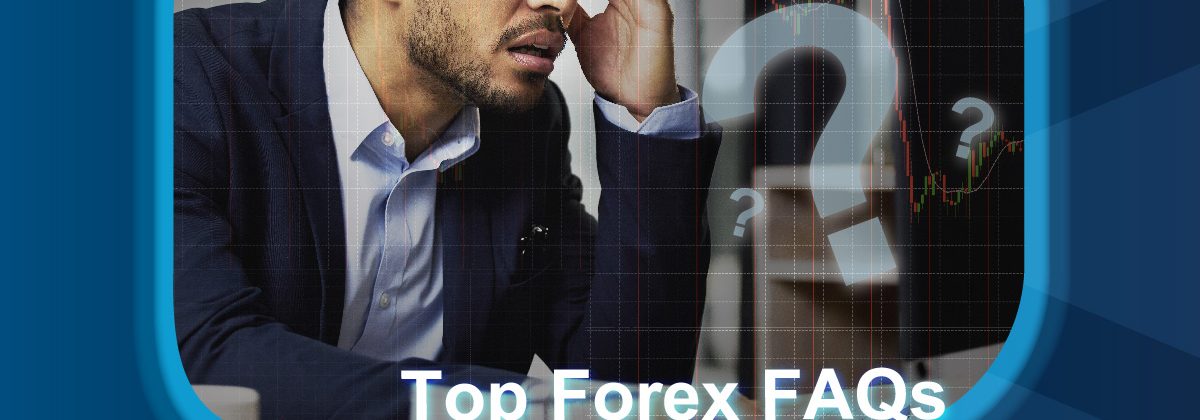Currency pairs, pips, spreads, and expiration dates; as a beginner, there’s a lot to learn about trading currencies in the live markets. If you’re wondering where to start, here are the 7 most frequently asked questions that aspiring forex traders ask their brokers. Dive right in to kickstart your forex trading journey.
1. What is a currency pair in foreign exchange?
Forex trading is basically buying one currency in exchange for another. A forex trader buys the first quoted currency and sells the second.
Consider the EUR/USD: Here, the euro (EUR) is the base currency, quoted in US dollars (USD). At the time of writing, the EUR/USD stood at 1.09, meaning that the value of €1 equaled $1.09. Therefore, to purchase €500, a trader would have to pay $543.28.
Based on the currencies involved, there are 3 types of Forex pairs – Major, Minor, and Exotic. Due to the popularity of the euro and the greenback, the EUR/USD is the most liquid currency pair. That means trades with this pair are executed much more frequently and faster than others, often immediately. Learn more about choosing a currency pair to meet your trading requirements.
2. What time is the forex market most active and why?
While the forex market remains active 24×5, although the trading activity is higher during certain periods. These are when any two sessions of the 4 largest FX markets in the world overlap.
The top 4 forex markets are:
- Sydney: 9:00 pm to 6:00 am UTC
- Tokyo: 12:00 am to 9:00 am UTC
- London: 7:00 am to 4:00 pm UTC
- New York: 1:00 pm to 10:00 pm UTC
The overlap between the London and New York exchanges (1:00 pm to 4:00 pm UTC) tends to see the highest trading volume and offers the most liquidity for forex traders. The next session with the highest activity is the 6:00 am to 9:00 am UTC timeframe when the Sydney and Tokyo sessions overlap. The most trading activity occurs when a market opens while another is active.
3. What is spread, and how is it calculated?
In simplest terms, spread is the difference between the asking price and the bid price. The value of a currency is determined globally. However, the cost of trading is not fixed and is added to each trade by forex brokers. This cost is called the spread, which is determined by the lot size and liquidity. Usually, spreads are higher for currency pairs with high volatility. The spread and lot size together determine the total cost of a trade.
Consider the major forex pair CAD/USD. With a bid price of 0.7375 and an ask price of 0.7378, the difference between the ask and bid is 3 pips.
A higher pip means a wider spread and a lower one means a tighter spread. Take an exotic pair, such as the ZAR/USD. If the asking price is 0.0544 and the bid price is 0.0580, the spread is 36 pips. This is significantly wider than that of CAD/USD, which is a major currency pair.
Orders might not be executed instantly upon opening a position. During the delay, an important economic update could cause fluctuations in the spread. Experienced traders keep an eye on factors that impact spreads, such as news events, changes in liquidity and volatility. Some of the other strategies to minimise spreads include choosing the most liquid currency pairs and trading during peak volume periods.
4. How many trades can we open at a time in forex trading?
While there is no upper or lower limit while trading currencies, you must make sure that you trade within the limits of your risk appetite. Over-trading may increase exposure to market risks while under-trading means lost opportunities.
Consider your chosen pair, timeframe, risk capacity, and trading goals to identify the appropriate number of trades. Also, remember that the rule of thumb for exceptional trading experiences is to protect your capital, profits come later. Be selective and strategic while opening forex positions.
5. Can I trade forex using CFDs?
Yes, forex CFDs (contracts for difference) allow traders to gain exposure to their preferred currencies without having to own them. They can speculate on both rising and falling prices with forex CFDs. Traders also prefer to trade currencies as CFDs as this gives them the opportunity to use leverage, which means they can open much larger positions with only a small deposit. Do keep in mind that with leverage you increase the potential profits but also the risks.
In the forex market, CFDs are typically traded on spot prices and you trade in the quote currency.
6. What is the meaning of Expiration Date in forex trading?
Expiration date is the date when a position automatically ends. CFDs with rolling contracts can extend the expiry date. The success of your CFD trade depends on the forex price at the time of closing the position. However, if the market outperforms your expectations and technical analysis indicates that there is room for further price increases, you can hold the position for longer to capture the opportunity. If the market moves unfavourably, a rolling contract can help you hold the position longer and choose to close it when the market turns in your favour.
So, use technical and fundamental analysis to decide whether you want to close your position and realise profits, leave it to expire, or roll it over for another session before the expiration date.
7. For how long can I hold a position in the forex market?
There is no standard upper limit to keeping trades open. However, certain regulatory bodies limit how long traders can hold their trading positions. Holding positions for longer durations can accrue rollover fees if the currency you are holding has a high interest rate. This technique is called carry trading.
Consider your trading strategy, risk potential, financial goals, and market conditions. Buy-and-hold is a popular trading strategy in which traders purchase a currency and wait for its price to rise enough to give significant profits before they sell it. You should also know that an open trade means continued risk exposure and rollover charges.
A good practice to evaluate your knowledge is to start with a demo account. It allows you to improve your skills and build a refined strategy before entering the live markets. Keep a trading journal to record your wins and trading lessons with your chosen pairs and preferred trading schedule to optimise your trading experience.
To Sum Up
- Forex trading is buying one currency in exchange for another, where you buy the first quoted currency and sell the second.
- Although the forex market is active 24/5, trading activity is higher when any two sessions of the 4 largest FX markets in the world overlap.
- Spread is the difference between the asking price and the bid price. The wider the spread, the higher the cost of trading.
- While there is no upper or lower limit on how many positions you can open at one time, make sure that you trade within your risk appetite.
- CFD-trading allows for rolling contracts to extend the position beyond expiry and take advantage of the market moves.
- There is no standard upper limit on how long you can keep trades open, but holding positions for longer can lead to rollover fees.
Disclaimer:
All data, information and materials are published and provided “as is” solely for informational purposes only, and is not intended nor should be considered, in any way, as investment advice, recommendations, and/or suggestions for performing any actions with financial instruments. The information and opinions presented do not take into account any particular individual’s investment objectives, financial situation or needs, and hence does not constitute as an advice or a recommendation with respect to any investment product. All investors should seek advice from certified financial advisors based on their unique situation before making any investment decisions in accordance to their personal risk appetite. Blackwell Global endeavours to ensure that the information provided is complete and correct, but make no representation as to the actuality, accuracy or completeness of the information. Information, data and opinions may change without notice and Blackwell Global is not obliged to update on the changes. The opinions and views expressed are solely those of the authors and analysts and do not necessarily represent that of Blackwell Global or its management, shareholders, and affiliates. Any projections or views of the market provided may not prove to be accurate. Past performance is not necessarily an indicative of future performance. Blackwell Global assumes no liability for any loss arising directly or indirectly from use of or reliance on such information here in contained. Reproduction of this information, in whole or in part, is not permitted.





